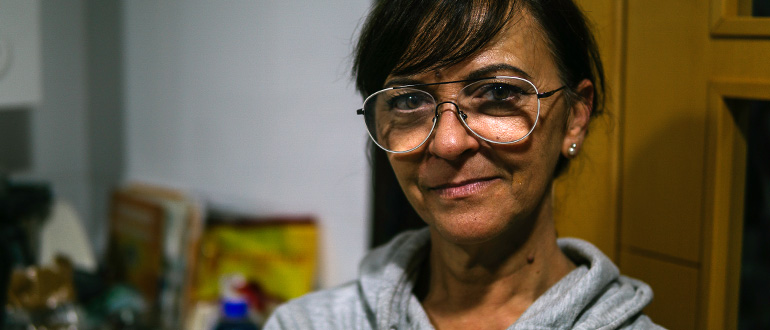Before and after: Earning a living wage

Earning a living wage can make a huge difference in people’s lives. Two people agreed to share their stories with Health Care Access Now (HCAN). They told us how they approached finances (and the way it made them feel) when they worked low-paid jobs and after they attained positions that paid a living wage.
“I will never go backwards.” That’s what Jamie* says about earning a living wage for the first time in her life. The new job that she started about a year ago effectively doubled her salary and allowed her entire life to change.
After a divorce, Jamie did not even have enough money to open a bank account. “My mom made up the difference,” she says, and that started a long period in her life when their finances were tied together. “I’m so grateful that she was able to help me,” she says. “Not a lot of people have that. But it still made me feel bad about not being able to provide for myself and my kids.”
Despite having a college degree, Jamie worked at a position that did not pay a living wage for a single person who lived alone, let alone a mother with children. “I think the only way someone could manage working that job is if they lived within walking distance and had no pets, children, or life outside of work,” she says.
The money she earned went to paying for housing first, utilities second, and everything else she put on a credit card or her mother provided. “I had no money for anything extra. I couldn’t get a haircut.”
She says she felt stuck. “I didn’t think anything was going to get better in terms of my position in life.” But she also couldn’t continue taking on the kind of debt she was, so she had to make a change.
Sadie’s* situation echoes Jamie’s in a lot of ways. After time outside of the workforce, she took a position that paid much less than she had earned 10 years before. “It was like I was starting over from the beginning,” she says. “I had all this experience, but it didn’t matter.”
I had no money for anything. I was drowning.
She thought the job she took could act as a springboard into something that paid more—and it did—but she burned through all her savings and started taking on debt during her first year employed there. After a medical emergency, she “stopped doing anything outside of work. I had no money for anything. I was drowning.”
Sadie’s and Jamie’s stories both have a happy ending. Sadie was promoted at work and then made a lateral move to a different company that increased her salary and changed her life. “The health insurance is so much better,” she says. “And I’m able to start paying down my debt.”
Jamie made a big change. She took a risk and applied for a position that she didn’t believe she was qualified for. She got the job, which nearly doubled her salary, and it has changed life for her whole family. “My mom says she can’t believe how much more money she has now that she’s not helping me.”
Beyond that, she doesn’t feel stuck anymore. She just passed an exam for a special certification that will allow more opportunity for advancement in her field. When she was working the old job, everyday stress prevented her from pursuing that option.
Jamie and Sadie were both lucky. Not everyone has the opportunity, the time, or the resources to be able to make sweeping changes in their employment and/or salary. Barriers include transportation, childcare, and chronic illness (among many others). But this change profoundly affected both of their lives.
“I’m not afraid anymore,” says Sadie. Jamie echoes that sentiment, “I have what I need now.”
*not her real name






